German-American encounters
To mark the start of the Year of German-American Friendship, Americans and Germans consider the sheer diversity of the transatlantic relationship.
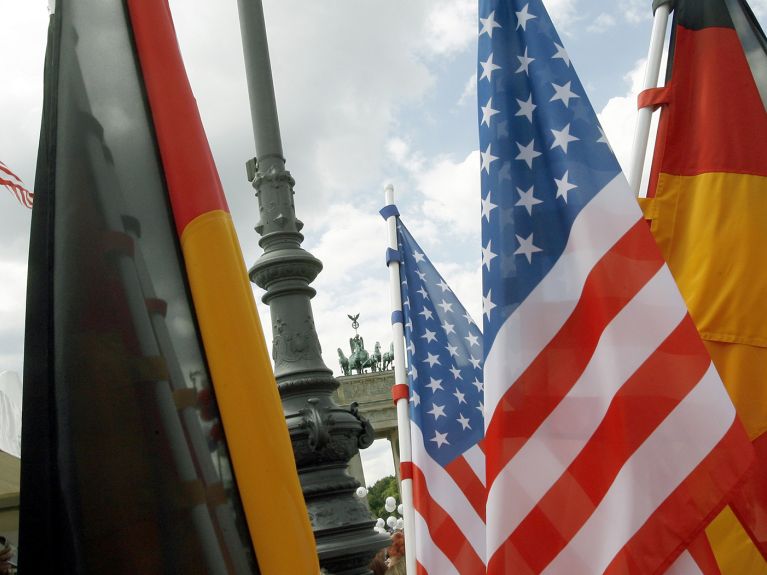
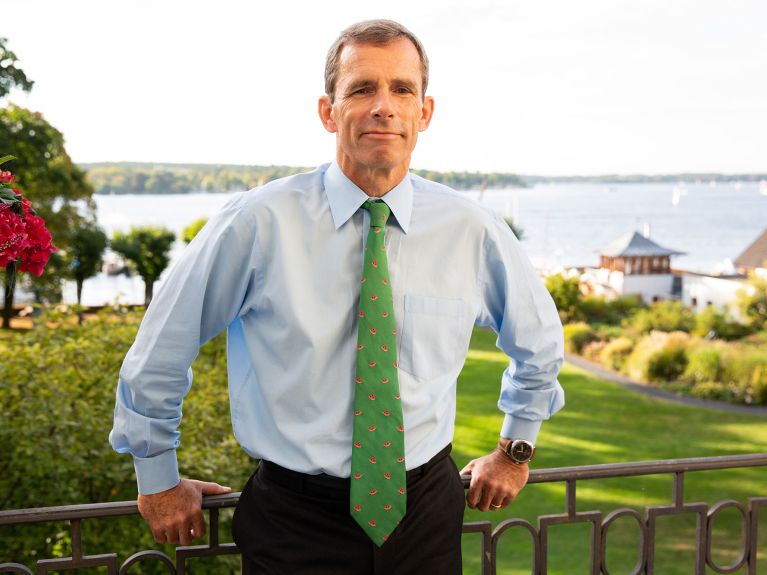
Terry McCarthy has been President of the American Academy in Berlin since September 2018.
“America is a country founded on ideas; Germany is a country of great thinkers. We share similar values—in our democratic systems of government, our respect for the rights of the individual, and our commitment to the rule of law. This common worldview goes deeper and is far more enduring than any of the political differences that inevitably occur from time to time. Our mutual understanding rests on the shoulders of many people from both countries who shared the same ideas and who, over the decades, have forged close personal, social, business, and cultural ties. These connections will remain strong, even when tested by turbulence internationally. It is clear that in the twenty-first century the German-American relationship will be central to the effort to foster peace and prosperity around the world—because good ideas do not disappear.”
Our connections will remain strong, even when tested by turbulence internationally.

Entrepreneur Stefanie Lemcke moved to the States in 2005 and founded an app company there.
“I established my company in New York, but my first investors were Germans. Since relocating to the US as a technology consultant in 2005 I have always remembered to nurture my old networks and create new ones. And I have noticed how productive it is when the American zest for innovation and German “green” thinking meld. When we moved to upstate New York in 2013 I invented GoKid, a carpool app that helps parents get their kids to school so that each doesn’t have to make the trip alone. More than 200,000 trips have now been planned using the app. The equity backers include Village Capital from Atlanta as well as Deutsche Bahn; Bosch is our technology partner. We now have customers on both sides of the Atlantic. Some do it because of the comfort offered, others because they want to reduce the environmental burden. GoKid reflects my life. It is a transatlantic company.”
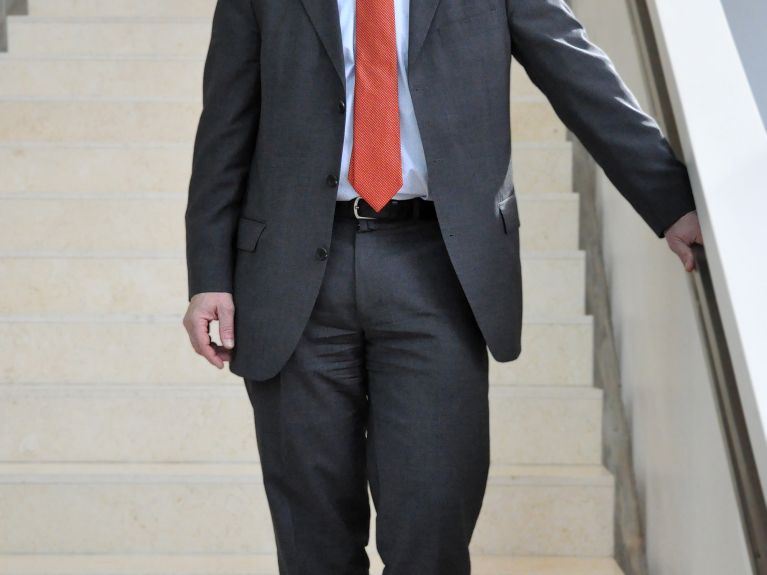
Steven E. Sokol has been President of the American Council on Germany since 2015.
“Throughout the postwar period, there has been an ebb and flow in the transatlantic relationship. A shared history and common values have formed the bedrock for a bilateral partnership that enabled peace and prosperity on both sides of the Atlantic for more than 70 years. However, the German-American relationship should not be maintained merely for historical or sentimental reasons.
In today’s complex, volatile, and uncertain environment, the United States and Germany face common challenges and have shared interests. As the tide of globalization peaks and the global security and economic orders show new signs of strain, many of today’s challenges cannot be contained by national or geographic boundaries. Migration, terrorism, cyber security, and climate are just a few of the pressing issues that require joint action. To tackle these challenges, the United States needs allies – and Germany is an indispensable partner in meeting today’s challenges. As one looks around the world, there may be strategic partners on a specific issue, but by and large the U.S. has more common interests with Germany than any other country.”
The USA needs allies to tackle the challenges – and in this context Germany is an indispensable partner.
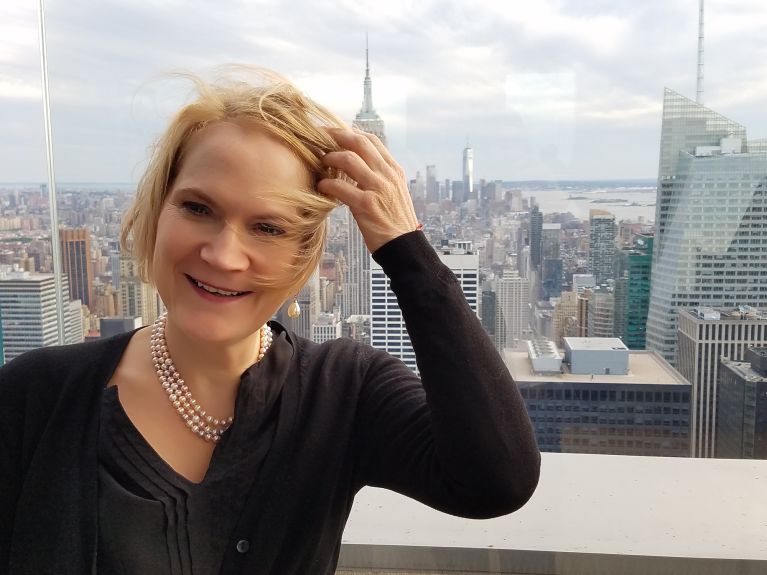
Irmintraud Jost is head of Heidelberg University’s New York office.
“I headed for New York 25 years ago – and learned a lot. The USA opens your mind – Americans are more communicative than Germans. Not that I ever wanted to lose contact with Germany. Be it in the past as correspondent for Axel Springer Medien or today as the representative of Heidelberg University – the focus has always been on ensuring that people on both sides of the Atlantic understand one another better. The scholarship the university offers for Americans really helps in this regard. As does the Quadrille Ball, a gala evening which I organise and which pays for young students’ study trips to the respective other country. And exchange is also important for me personally as I have dual citizenship. I feel at home in New York. Nevertheless I would also like to be in Germany again and who knows? Maybe one day I will go back.”
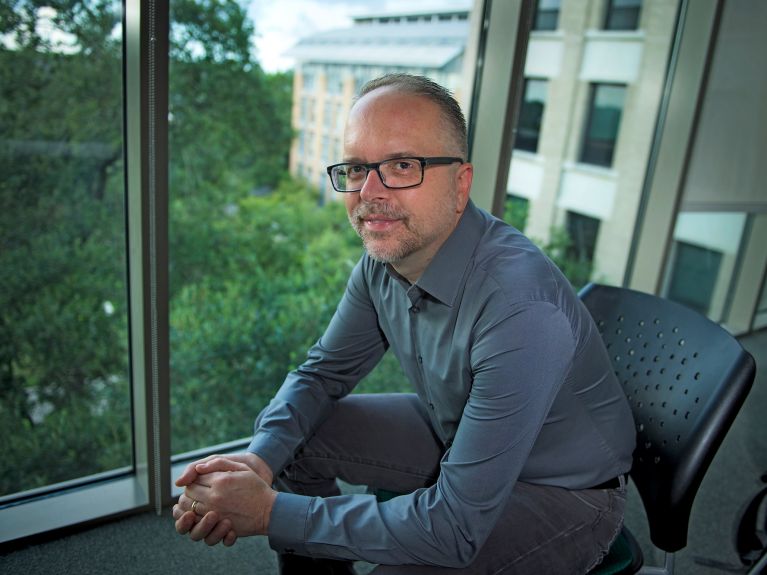
Brian S. Mitchell is Professor of Chemical & Biomolecular Engineering at Tulane University in New Orleans, Louisiana.
“My relationship with Germany spans both the personal and professional. During my first research visit to the Universität Karlsruhe in 1992-93 as a postdoctoral scholar, my two oldest children went to a German school, my youngest daughter started Kindergarten, my wife took care of us all, and we rented our apartment from a wonderful couple who my children would come to know as their ‘German Grandparents.’ We’ve returned multiple times in the 25 years since for research visits ranging from three to six months in such beautiful places as Köln, Berlin, Potsdam, and Freiberg in Saxony; our growing children joining us as time and life stage allowed.
Now, as a researcher and educator, I use the global competencies I developed to inform policy decisions and create new programs that will provide the next generation of scientists and engineers to our global workforce. I owe these opportunities in large part to the funding that I receive from both the U.S. and German governments. The Deutscher Akademischer Austauschdienst (DAAD) and Alexander von Humboldt Stiftung (AvH) have both been invaluable in providing the funds for my research stays in Germany.”
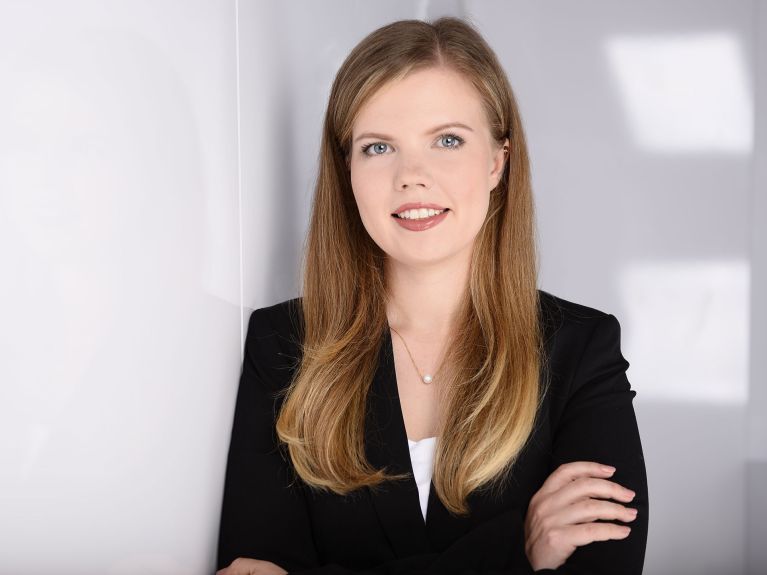
Bettina Fleck, doctoral student in Chemistry at the Karlsruhe Institute of Technology, is doing research until December 2018 at the universities in Stanford and Berkeley, California.
“My time in the USA offers me a superb opportunity to make progress with my research. Many antibiotics have no effect against multi-resistant pathogens, which is why I am searching for alternative, anti-microbial medicines. In August 2017 I met Professor Annelise Barron of Stanford University at a conference. Our research interests make for a great fit, and in order to strengthen the academic interaction I successfully applied for a scholarship for the USA from the Karlsruhe House of Young Scientists. In America I’m not just taken by the research, but also by how open and cordial the people are. They’re all very interested, also in my cultural background.”
“Wunderbar together”: The Year of German-American Friendship
